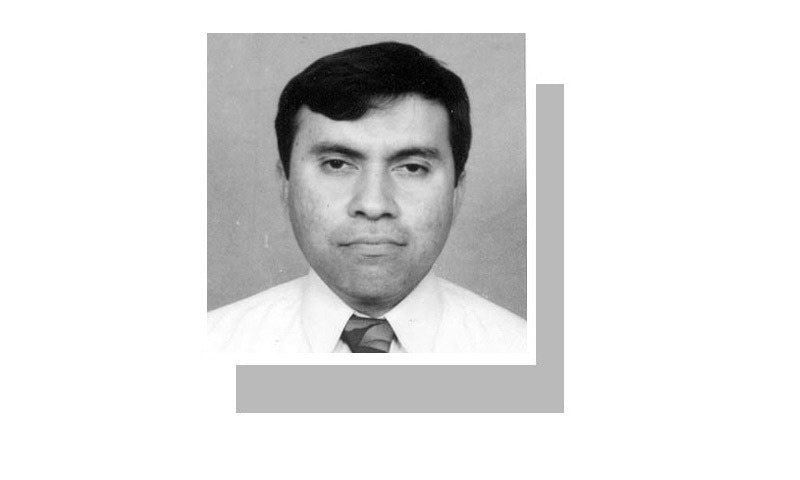LAST month, the Balochistan chief minister announced that the Gwadar Master Plan had been approved, marking the completion of an important phase in sequencing the various economic, infrastructural and strategic developments being undertaken by different agencies, including many Chinese institutions. It is also believed that the plan will receive the National Development Council’s endorsement. Many features in the plan are significant, given Gwadar’s pivotal role in CPEC.
The people of Balochistan in general and Gwadar in particular can draw satisfaction from the fact that the entire political and military leadership is in agreement in this crucial strategic venture. If undertaken appropriately, Gwadar can experience an exponential pace of development. Past initiatives did not yield results as per the aspirations of the local population, national and provincial leadership, but the present plan is expected to streamline actions based on extensive analysis and timely interventions.
The strategic significance of Gwadar was never in doubt. The port is situated on Pakistan’s south-western coast on the Arabian Sea, at the mouth of the Persian Gulf, through which more than one-third of the world’s oil passes. It is situated between three vital regions: the Gulf, Central Asia and Southwest Asia. Despite these advantages, trade and commerce haven’t been able to take off. High threshold costs are involved to make the port a working enterprise.
Due to technical deficiencies in the port operations itself, trans-shipment activities cannot take place. Road connectivity to the rest of the province and the rest of the country is limited; the M8 Motorway from Gwadar to Sukkur-Larkana is only partially complete, and railroad development has yet to take off. Without proper land-based links, the real benefits of the port will be difficult to come by. The overarching impact of poor security and a hostile hinterland also causes impediments in the port’s utilisation. Even large-scale enterprises such as shipyard development are affected due to lack of operational clarity and follow-up in decision-making.
The strategic significance of Gwadar was never in doubt.
Begun in 2008, the port is expected to take three more years to complete. The master plan and other policy instruments assign enormous importance to tax incentives, threshold assistance and other benefits. But investors will only be attracted if and when the real economic enterprises, with state support, begin functioning. Air links for Gwadar exist for small and medium passenger/cargo aircraft; now, 4,300 acres of land have been allocated for a new airport. This $256 million project, undertaken with Chinese assistance, is scheduled for completion in three years’ time, and will catalyse business and commerce in the area.
CPEC and Gwadar also depend on how our diplomatic and trade links with Central Asian Republics and Afghanistan evolve. The road-rail links from CAR can cater to Afghanistan’s transport requirements. Once conditions in Afghanistan become conducive, it will spark momentum for regional trade activity. The $10 billion TAPI gas pipeline project is still on despite the Kashmir tensions, and will enable Turkmenistan to export natural gas to Afghanistan, Pakistan and India. With strategic energy supplies, the region, including Gwadar, will be transformed for the better.
Real-estate enterprise is the most visible component of Gwadar’s economic activities. The master plan has allocated over 40 per cent of land for housing and multi-use development. However, a major test for the administration lies in regulating land management, utilisation, monetisation and distribution controls. As far as allocation goes, key decisions are taken in the clouds and then enforced on Gwadar: local and provincial administrations do not have exclusive control in this respect.
However, development control is one effective option that the Gwadar Development Authority can effectively apply. There are many legal, quasi-legal and illegal schemes floating around. If GDA can make land sales conditional to utilisation and occupancy, speculation can be controlled. It must negotiate with the various federal and military institutions to constitute a Gwadar Steering Committee as a forum to review and decide matters of development and urban land management. The same platform can examine issues related to low-income housing, provision of basic amenities to underprivileged groups, and spatially connect large enterprises to evolving, small-scale vendor operations.
Moreover, a multi-stakeholder consultation, involving political parties and groups, must be held on the present plan to make it a consensus document. Genuine concerns must be addressed by the powers that be to enable the local people take effective ownership of this venture.
The writer is chairman, Department of Architecture & Planning, NED University, Karachi.
Published in Dawn, October 11th, 2019












































